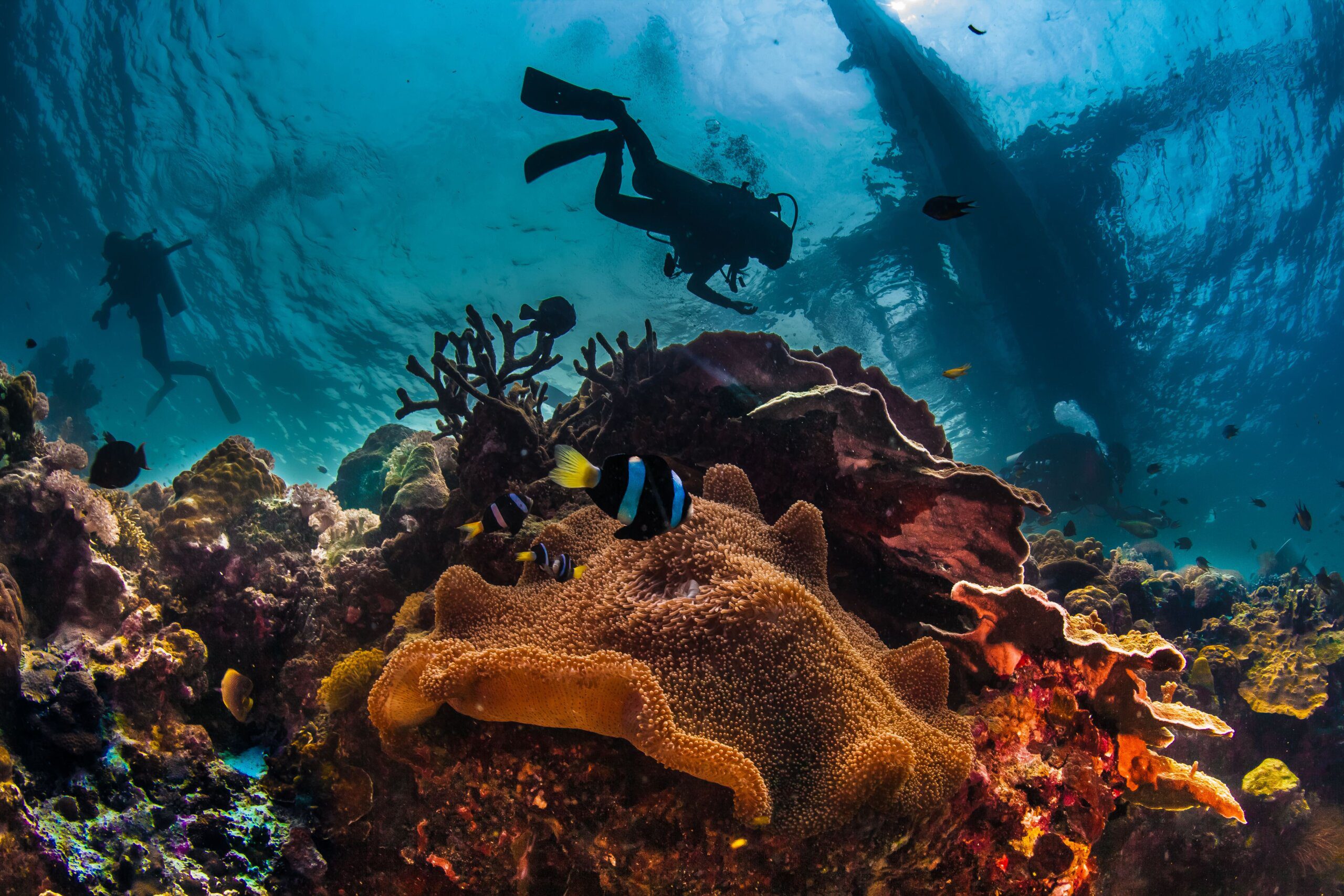In a world where the hustle and bustle of daily life often overwhelms us, scuba diving emerges as a magical window into a realm of peace and wonder: the marine environment. This practice not only offers an adventure-filled and tranquil experience but also opens our eyes to the extraordinary marine biodiversity, a treasure trove of life inhabiting the depths of our oceans.
The oceans: the pulsating heart of global biodiversity
The oceans cover over 70% of the Earth’s surface and are the pulsating heart of our planet, hosting an astonishing biodiversity. From the tiny planktonic creatures floating in ocean currents to the colossal cetaceans traversing the marine depths, underwater life is as diverse as it is fascinating.
Scuba diving offers us the key to access this unknown world, allowing us to closely observe the complexity and beauty of marine life.
The importance of marine biodiversity
Marine biodiversity is not just a wonder to behold but also plays a crucial role in the ecological balance of our planet. Marine ecosystems, such as coral reefs and mangroves, provide vital ecosystem services, including oxygen production, climate regulation, and coastal protection.
Scuba diving raises awareness about these realities, prompting us to reflect on the importance of ocean conservation.
ALSO READ: Explore The Benefits Of Diving: An Underwater World Of Health And Adventure
Threats to marine biodiversity
However, marine biodiversity is threatened by numerous dangers, mainly caused by human activities. Pollution, overfishing, climate change, and habitat destruction endanger the survival of countless marine species.
It becomes essential not only to enjoy the beauty of the oceans through scuba diving but also to adopt a responsible and sustainable approach towards these fragile ecosystems.
Scuba diving: a responsible practice
Scuba diving teaches us respect for the marine environment. Each dive is an opportunity to observe the wonders of nature and recognize our role in protecting them. By following eco-friendly diving practices, such as avoiding touching or damaging marine life and corals, we can ensure that the oceans remain a haven for biodiversity for future generations.
The role of diving in conservation
Moreover, scuba diving can stimulate scientific research and conservation. Diving enthusiasts often contribute to data collection and reporting changes in marine ecosystems, providing valuable information for biodiversity studies.
This collaboration between the diving community and scientists can accelerate conservation efforts and help develop effective strategies for protecting marine environments.
ALSO READ: Guided Diving: A Detailed Journey Into The Underwater World
The inspiration born from exploration
But scuba diving is not just a tool for conservation; it is also an endless source of inspiration. Each dive is an adventure that allows us to explore breathtaking underwater landscapes, discover exotic marine species, and even visit historic wrecks lying silently on the seabed. These unique experiences enrich our lives, broadening our understanding of the world and inspiring us to protect the precious natural heritage of the oceans.
Divers’ commitment to conservation
In conclusion, scuba diving is not just a recreational activity; it is a journey of discovery and a commitment to the conservation of marine biodiversity. Each dive offers us a unique perspective on the importance of marine ecosystems and our role in their protection.
Through responsible diving practices and support for conservation efforts, we can help ensure that the wonders of the oceans remain a legacy for future generations. Let’s dive in with respect and admiration, conscious guardians of the magnificent underwater world we have been granted to explore.



